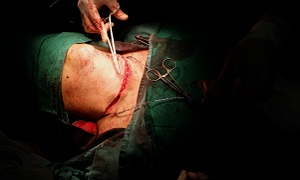Best Thyroidectomy Doctors in india
Best Thyroidectomy Hospitals in India
- City: New Delhi, India
Hospital Highlights:
- Equipped with 650 beds, BLK-Max Super Speciality Hospital is the largest stand-alone private sector hospital in Delhi.
- With over 1500 healthcare providers and 150 globally renowned super specialists, the hospital is one of Asia’s largest BMT Centres. The hospital is known for having some of the best cancer doctors in the country.
- The hospital is NABH and NABL accredited and was inaugurated by the first Prime Minister of India. Pt. Jawahar Lal Nehru.
- City: Hyderabad, India
Hospital Highlights:
- Located in the vibrant city of Hyderabad, Apollo Health City is a world-renowned medical facility that provides outstanding care and treatment to patients coming from different parts of the world.
- Founded in 1988, this 550-bed multispecialty hospital with 50 specialties and 12 Centres of Excellence continues to deliver outstanding outcomes for patients with the simplest to the most complicated medical conditions.
- Backed by the latest medical equipment and a dedicated team of professionals, the hospital provides comprehensive treatment across various specialties including, cardiology, critical care, neurosciences, cancer, orthopedics, gynecology, ENT, transplants, gastroenterology, etc.
- Apollo Health City is a cutting-edge healthcare facility that combines various facilities under one roof. These may include state-of-the-art physical medicine, rehabilitation, and wellness services with education, research, telemedicine, innovative medical devices, disease management programmes, and medical talents.
- The hospital is known for offering top-notch cancer treatment accompanied by cutting-edge facilities and technology.
- The hospital also offers a broad spectrum of cosmetic procedures that improve not just appearance but also comfort.
- In 2011, Apollo Health City was the recipient of the Asian Hospital Management Award (AHMA).
- In 2013, the Government of India recognized Apollo Health City as the top medical tourism destination in the country.
- City: Mumbai, India
Hospital Highlights:
- Kokilaben Dhirubhai Ambani Hospital, Named after the wife of Indian industrialist Dhirubhai Ambani, the founder of Reliance Industries, this is one of the top hospitals in Mumbai. This 750-bed multi-specialty hospital became operational in 2009. Known as one of India’s most advanced tertiary care facilities, the hospital is designed to raise India’s global standing as a healthcare hub, with an emphasis on excellence in clinical services.
- Kokilaben Dhirubhai Ambani Hospital uses Protocol and Care Pathway based treatment models to ensure the best outcomes for patients.
- The hospital represents a confluence of top-notch talent, cutting-edge technology, state-of-the-art infrastructure, and, most importantly commitment.
- The hospital also holds the accreditation of the NABH, NABL, CAP, and JCI.
- The hospital has been recognized as the No. 1 Multispecialty Hospital in Mumbai and the West Zone for the fifth year in a row in 2020 by The Week.
- City: Chennai, India
Hospital Highlights:
- Apollo Cancer Centre in Teynampet, Chennai is one of the best super speciality hospitals in India. It is the country’s first ISO-certified healthcare facility.
- Additionally, it is the first hospital in Chennai and the first oncology hospital in India to receive NABH accreditation.
- The hospital provides advanced tertiary care in oncology, orthopedics, neurology and neurosurgery, head and neck surgery, and reconstructive and plastic surgery.
- Additionally, it offers specialized healthcare of international standards with results comparable to those of the best hospitals in the world.
- It is outfitted with 300 beds, the newest and greatest technology, a large pool of highly qualified specialists, and a committed team of medical and paramedical professionals.
- It is one of the first few medical facilities in India to offer comprehensive cancer care. A team of skilled medical, surgical, and radiation oncologists makes up the Tumour Board, which is a component of the complete treatment planning system. After reviewing reported cases, the Board determines in concert with diagnostic specialists what course of action is best for each individual patient. The panel is further supported by dieticians, medical counselors, speech therapists, and other pertinent specialists.
- The hospital launched the first ExcelsiusGPS® Spine Robot in South India and has completed over 50 surgeries till date.
- It is also one of the few cancer hospitals in India to offer Cyber Knife therapy. Till now it has completed 1320 Cyber Knife therapies.
- The institution is also one of the few in India with the capacity to do transplants and find a prospective unrelated donor. The hospital has performed over 1000 BMTs till now.
- Furthermore, it has an exceptional milestone of performing exultant Micro vascular free tissue transfer and Aesthetic surgeries on more than 1000 patients with success.
- City: Chennai, India
Hospital Highlights:
- Apollo Hospitals, Chennai, is one of the best hospitals for heart care in India. Over the years, Apollo has expanded all over India, as a healthcare chain.
- India’s first ‘Only Pancreas’ transplant was performed in Apollo Hospital. The hospital is known for successfully performing Asia’s first en-bloc combined heart and liver transplant, and over the years, it has attained a remarkable achievement in the global healthcare space. Around 3-4 organ transplants are performed in the hospital per day.
- Equipped with over 500 beds, this hospital in Chennai was established in 1983 and since then has been among the most preferred hospital for patients from all over the world.
- The hospital holds accreditation of the NABH and JCI and is the first hospital in India to be ISO 9001 and ISO 14001 certified. It is also the first South Indian Hospital to receive subsequent reaccreditation from the JCI USA 4 times.
- City: Chennai, India
Hospital Highlights:
- Established in 1999, Gleneagles Global Hospital, Chennai, is one of the top healthcare facilities in Southern India. It is part of the Gleneagles Hospital Chain, which is the fourth largest healthcare chain in the country. The hospital specializes in multi-organ transplants of kidneys, liver, lungs, heart, etc.
- The hospital has an excellent infrastructure and state-of-the-art lab and equipment set-up. The hospital boasts cutting-edge technologies, a highly skilled team of doctors and surgeons, and trained support staff. Located in Perumbakam, Chennai, it is one of India’s premier health care destinations. The hospital has performed some of the most complex surgical and clinical procedures in India including multi-organ transplantations.
- The hospital’s lung transplantation program is one of the best in the country. The hospital is known for having performed India’s first single lung transplant and first minimal invasive lung transplant. It is also the only Indian hospital to be associated with King’s College Hospital, London, United Kingdom for liver transplantations.
- City: Hyderabad, India
Hospital Highlights:
- KIMS Hospital (a brand name of Krishna Institute of Medical Sciences) is one of the largest and best multi-speciality hospitals in Hyderabad. The hospital provides various treatments to an enormous number of patients.
- The hospital has a capacity of more than 3000 beds. KIMS Hospitals offers different healthcare services in more than 25 specialities and super specialities.
- The hospital is equipped with modern medical equipment and technology. It has robotic equipment to provide minimal invasive techniques for patients.
- The hospital is aimed at providing world-class healthcare facilities and services at an affordable cost for patients.
- The various specialities and departments of the hospital include neurosciences, gastroenterology & hepatology, robotic science, reproductive sciences, dental science, oncological sciences, organ transplantation, heart and lung transplantation and mother and child care.
- City: Kolkata, India
Hospital Highlights:
- Established in 2003, Apollo Gleneagles Hospitals is a 750-bed multispecialty tertiary care hospital situated in Kolkata.
- With 33 Centres of Excellence and more than 50 specialties, Apollo Gleneagles Hospitals, Kolkata is capable of handling all sorts of patients.
- This tertiary care hospital, which is a 100% subsidiary of Apollo Hospitals Enterprise Ltd., India, is regarded as one of Kolkata’s top hospitals.
- The facility is a complete blend of cutting-edge technology, state-of-the-art infrastructure, and genuine hospitality.
- Focusing on numerous specialties, the hospital provides all-inclusive medical treatments supported by cutting-edge technology and a staff of highly qualified medical specialists.
- Patients across the globe come to Apollo Gleneagles Hospitals Kolkata for their treatment. Moreover, international patients receive full attention and assistance for their treatment and are provided with a hassle free experience.
- Apollo Gleneagles Hospitals, Kolkata is the only hospital in Eastern India to hold the Joint Commission International (JCI) certificate.
- It is also the only hospital in Kolkata to hold the NABL accreditation in six different categories, which includes Clinical Biochemistry, Clinical Pathology, Hematology & Immunohematology, Microbiology & Serology, and Histopathology & Cytopathology.
- Furthermore, Apollo Gleneagles Hospitals, Kolkata is known for performing the first ever Reverse Shoulder Prosthesis Replacement in East India.
- City: Bengaluru, India
Hospital Highlights:
- Established in 1991, Manipal Hospital, Old Airport Road, Bangalore is the flagship facility of the Manipal Hospitals Group, which is one of the largest networks of Multispecialty Private Hospitals in India.
- The facility is well-known for its state-of-the-art technology, performance-driven, patient-centric, and evidence-based approach.
- The facilities offered at Manipal Hospital meet the highest international standards, allowing the hospital to attract a large number of national and international patients.
- Their expertise encompasses the diagnosis and treatment of a wide range of diseases in several specializations that address both simple as well as complex medical procedures.
- There are total 600 beds accessible in the hospital for the in-patients so they may heal while being closely watched after by the medical team. In addition, it has 144 critical care units, including NICUs, ICCUs, and ICUs. Apart from that, the hospital also offers 20 contemporary, modular state-of-the-art operating rooms with all the amenities needed.
- The hospital has several departments that are overseen by highly skilled, certified, and experienced medical experts.
- One of the best departments in the hospital is that of the Cancer department which is known for its advanced cancer diagnosis and treatment facilities such as Intracavitary Chemotherapy, Biological Therapy, HIPEC, PIPEC, Nuclear Medicine, Radiation Therapy, etc.
- It is one of the few hospitals in Bangalore that provides full range of pediatric services, including pediatric emergency services, pediatric gastroenterology, pediatric neurology, pediatric cardiology, pediatric orthopaedics, pediatric allergies, pediatric immunology, and infectious diseases.
- Furthermore, Manipal Hospital, Old Airport Road, Bangalore is also regarded as one of the best hospitals for bone and spine related disorders.
- City: Mumbai, India
Hospital Highlights:
- Established in 2016, Apollo Hospitals, Navi Mumbai is one of Maharashtra’s most advanced multispecialty hospital. This 500-bed hospital provides sophisticated treatments and integrated super specialty services under one roof.
- The hospital features a cutting-edge infrastructure that houses 13 state-of-the-art operating rooms, advanced laboratory and medical diagnostics, and 120 ultra-modern I.C.U. beds, including N.I.C.U. and P.I.C.U., monitored round the clock by critical care specialists.
- With 57 specialties and subspecialties, the hospital boasts a team of renowned medical specialists who offer accurate diagnosis and treatment with easy accessibility to their patients.
- Additionally, the hospital offers highly customized, individualized health check programs that are made to fit each person’s needs in terms of lifestyle.
- Apollo Hospitals, Navi Mumbai has been accredited by both the National Accreditation Board for Hospitals and Healthcare Providers (NABH) and the Joint Commission International (JCI).
- Apollo Hospitals Navi Mumbai has been awarded the “Best Practices-International Services Award” at the annual awards for service excellence and operations excellence.
Thyroidectomy
Thyroidectomy is a procedure which involves the removal of all or part of the thyroid gland. Located at the base of the neck, the thyroid is a butterfly-shaped gland, which produces hormones for regulating every aspect of one’s metabolism, starting from a person’s heart rate to how quickly they burn calories.
Thyroidectomy is used for treating thyroid disorders, which can include cancer, a noncancerous enlargement of the thyroid or an overactive thyroid. Depending on the reason for your surgery, your doctors will determine how much of your thyroid gland they will be removing. If they remove only a portion, then your thyroid might be able to function normally after surgery. However, if the entire thyroid needs to be removed, you will require daily treatment with thyroid hormone in order to replace your thyroid’s natural function.
Purpose
The presence of nodules or tumors on the thyroid gland is usually the common reason for thyroid surgery. Although most of the nodules are benign, some of them can be cancerous or precancerous.
Benign nodules can lead to problems, if they are large enough to obstruct the throat or if they stimulate the thyroid and overproduce hormones.
If the thyroid gland starts swelling or gets enlarged, it can be another reason for thyroid surgery, as such a condition can block one’s throat as well as interfere with eating, speaking and breathing.
Preparation
If you are suffering from hyperthyroidism, your doctor might prescribe you medication to regulate the thyroid function as well as to decrease any risk of bleeding.
You might also need to avoid eating and drinking for a certain period before the surgery. This will help in avoiding anesthesia complications. It is also better if a friend or relative is available to help you reach home after the procedure.
This procedure is generally performed under general anesthesia, so you will not be conscious during the entire time. First, the anesthesiologist will be giving you an anesthetic medication as a gas to breathe through a mask, or he/she will inject a liquid medication into a vein. Next, a breathing tube will be placed in your trachea, so that you are able to breathe properly throughout the procedure.
Several monitors will be placed by the surgical team on your body to make sure that your heart rate, blood pressure as well as your blood oxygen all remains at safe levels throughout the procedure. The monitors will be including a blood pressure cuff on your arm and heart-monitor leads which will be attached to your chest.
Procedure
Once you are unconscious, the surgeon will be making an incision low in the center of your neck. It might be placed in a skin crease, where it will be difficult to see once the incision is healed. After this, all or part of the thyroid gland is removed, depending on the reason for the surgery.
If you are having a thyroidectomy due to thyroid cancer, the surgeon might also examine as well as remove lymph nodes around your thyroid. Thyroidectomy generally takes between one to two hours. The time depends on the extent of your surgery.
There are multiple approaches to thyroidectomy, which includes:
Conventional thyroidectomy
In Conventional thyroidectomy, an incision is made in the center of your neck to access your thyroid gland directly. Most people are likely to be operated on using this procedure.
Transoral thyroidectomy
Transoral thyroidectomy approach uses an incision inside the mouth, to avoid making one in the neck.
Endoscopic thyroidectomy
In Endoscopic thyroidectomy, smaller incisions are used in the neck. Surgical instruments as well as a small video camera are inserted through the incision. Throughout the procedure, the camera will guide your surgeon.
After the surgery
You will either need to stay overnight at the hospital or go home the same day. You might experience some pain in the neck area, but medicine will help. You might also have a hoarse voice or sore throat for some days. There might be a drain as well from the site of the incision. It can help with healing and later it can be removed.
You will receive instructions regarding taking care of yourself after the operation and when to see your doctor for follow-up. If you require other cancer treatments, they can begin soon after the operation.
If all of your thyroid glands are removed, your doctor might be prescribing thyroid hormone replacement medicine for replacing the thyroid hormones. You might need this medication for the rest of your life and the doctor will need to make a few changes along the way to make sure you get the right amount. However, if only part of your thyroid was removed, you may not require any kind of thyroid hormone replacement medicine.
Once you reach home home, you will be able to return to your usual routine. However, you should wait for a minimum of ten days before you do any vigorous activity. It can take up to a year for the scar from the surgery to fade. Your doctor might recommend you sunscreen as it can help minimize the scar from being noticeable.
Risks
Like all major surgeries, thyroid surgery has the risk of an adverse reaction to general anesthetic. Heavy bleeding and infection are also possibilities in some cases.
However, risks that are specific to thyroid surgery occur quite rarely. The two most common risks are:
- Damage to the nerves connected to your vocal cords
- Damage to the parathyroid glands, i.e. the glands controlling the level of calcium in your body
Supplements can be used for treating low levels of calcium. It is important for the treatment to begin as soon as possible. If you feel nervous or jittery or if your muscles start twitching, you need to inform your doctor immediately, as these are signs of low calcium.
It is also notable that out of all patients having a thyroidectomy, only very few will develop hypocalcemia. Out of those, approximately 75 percent will recover within a year.











